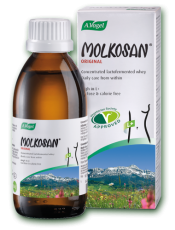 Let’s Dive Into The Magic Of Digestive Health
Let’s Dive Into The Magic Of Digestive Health
And Discover How Herbal Tinctures Can Bring Relief
If, like myself, you love good food and eating a vast variety right across the culinary globe, you may, at times, experience some discomfort and bloatedness after your meal or the next day. Certainly going through Menopause is no laughing matter when it comes to this huge balloon of a belly all of a sudden. A totally new phenomenon, which simply feels awful. I have found a way, however, to keep these unpleasant and uncomfortable side effects at bay with the help of some ancient, well-researched, reliable and safe herbal tinctures.
Please meet my guest blogger Sarah Hyland, Nutritional Advisor with the long-established and trusted A. Vogel brand. In her post about digestion, Sarah will explain to us, how best to use traditional herbal medicines and why they can be a life changer when it comes to digestive discomfort, bloatedness and irregularity in bowel movements.
What is bloating?
 (By Sarah Hyland – Studying Health Sciences, Writer & Product Trainer @sarahhhealth
(By Sarah Hyland – Studying Health Sciences, Writer & Product Trainer @sarahhhealth
Bloating is often used in Ireland as a polite euphuism for anything from wind to constipation but also fluid retention. In our defence, it’s sometimes hard to tell the difference especially when they all come together! Here’s a dummies’ guide to bloating (with solutions) – find out if yours is a digestive maladie or a water balance issue.
The term ‘bloating’ may be used to mean fluid retention, often caused by hormonal fluctuations or dehydration but it can also refer to digestive distention and discomfort caused by excess wind or constipation. Bitter herbs, avoidance of certain foods, and simple lifestyle changes may help to reduce bloating by strengthening digestion and balancing bodily fluids.
What is ‘Bloating’?
The term ‘bloating’ caused me much confusion when I first started working in a health food shop. As a naïve (but eager) 20 something-year-old I was blissfully ignorant of the prevalence of digestive ailments, and assumed that bloating was made of water; something like Violet Beauregard, the greedy girl/giant blueberry who had to be rolled to Willy Wonka’s juicing room for deflation. (I hope this old-person analogy still holds water.) It wasn’t until I heard my boss recommending linseed and constipation remedies for the same complaint, that it dawned on me. In Ireland, we use ‘bloating’ as a polite euphemism that covers the fluid retention that can build up before a woman’s period, abdominal distension due to constipation, or a belly full of farts. In our defense, it’s sometimes hard to tell the difference, especially when they all come together!
The digestive bloat
A big puffy middle may be caused by a variety of digestive vagaries or ailments. Overeating, fizzy drinks, takeout curries and alcohol are obvious short-term culprits that can cause unpleasant feelings of fullness, wind, queasyness and indigestion. Herbs that nourish the liver and improve bile flow are useful in this instance. We need bile to break down and digest fatty foods and alcohol. Bile also triggers peristalsis, the wave-like movement of the bowel that pushes digested food and waste along and out.
Bloating and wind can also indicate chronic digestive trouble such as constipation, food intolerances and stress, all of which can cause IBS symptoms. Not necessarily something that can be fixed overnight with an easy, single, over-the-counter purchase. Over time, poor food choices can have a devastating effect on appetite and can weaken the digestive system’s production of gastric juices and digestive enzymes. A period of illness can have a similar effect, and the focus should be on strengthening and supporting the body.
Constipation and wind are associated with a low-fiber diet and mild dehydration; so, try these lifestyle challenges:
- Drink an extra pint of water (taken away from meals) every day for 10 days
- Once your water intake is on point, consume a tablespoon of chia seeds (soaked in water for at least six hours) daily
- Encourage the balance of friendly bacteria in the gut by eating a daily portion of lacto-fermented, natural, unsweetened yoghurt, sauerkraut, kombucha or kefir.
Herbs can be very useful when supporting good digestion. Milk Thistle and herbal bitters such as Dandelion, Boldo, and Artichoke have long been used to support digestion and the liver. Traditionally they are taken as an aperitif before a meal to help stimulate production of bile and digestive juices.
Herbalists will also use bitters such as Yarrow, Gentian, Blessed Thistle and Dandelion to strengthen a weakened digestive system that may not be processing food very effectively. The idea is to promote and stimulate the production of digestive enzymes and digestive juices. Bitter tastes are particularly useful for those whose appetite may need regulation. This is why in ye olden times, people used to start the meal with something bitter tasting a Martini, half a grapefruit or a green salad. In Europe they still do this, and generally have fewer digestive problems.
For trapped wind and painful colic, herbs that are considered antispasmodic may be used as a tea or digestive remedy – Yarrow, Fennel, Avena sativa and Lemon Balm.
| My favourite lacto-fermented product is Molkosan – I put 1-2 teaspoons in a glass of water for a refreshing drink! |
Fluid retention – the Violet Beauregard
The other kind of bloating – excess water or water retention – can leave you feeling puffed up. It may cause bags under the eyes and swollen legs, ankles, hands or feet. Those of us whose fluid levels fluctuate with our hormones may see changes in bra size in the days leading up to the period. It can render that top button of your jeans un-closeable or ruin the line of a dress that you want to look good in.
Various factors cause water retention, including some common prescription medications and serious underlying health conditions like kidney disease and heart failure. If suspected, these would need to be investigated by a medical professional. However, lots of people experience mild water retention due to things like hot weather, hormonal changes like menopausal transition or fluctuations before and during a period, or simply being inactive for long periods, such as sitting in front of a computer.
Drinking lots and lots of still water is important, as our body’s fluid balance is very much influenced by the potassium-sodium salt balance. We don’t want sodium to be too concentrated in our organs or blood. Fluid balance will be improved by reducing table salt (sodium chloride), salty foods like crisps, sausages, ham, etc., and eating instead more potassium-rich foods like fresh vegetables. Bananas, oranges, spinach, broccoli, and the herb Dandelion are all good potassium sources. A common response to fluid retention is to stop drinking water, in the mistaken belief that you already have too much in your soggy body. However, the body hangs on even more grimly to every drop of fluid if it thinks there’s a drought. Drink up, and the body will release the excess. Have a Dandelion tea. Move about more to stimulate the circulation and the lymphatic system. Rebounding (bouncing on a trampoline) is fun and very good for moving fluid in the body. For those of us who would rather take a gentle approach, try a walk after dinner. Herbs that are useful for fluid balance are Dandelion, Hawthorn, Parsley, Solidago (Golden Rod), Horsetail, Nettle and Green tea.
My Top Tip: Add 1-2 teaspoons to a glass of water for a refreshing drink

The End! – I would like to thank Sarah and the A.Vogel company for their contribution to my website.
Let me know what you think and please get in touch, if you would like to find out how to order your products from us.
 Let’s Dive Into The Magic Of Digestive Health
Let’s Dive Into The Magic Of Digestive Health (By Sarah Hyland – Studying Health Sciences, Writer & Product Trainer
(By Sarah Hyland – Studying Health Sciences, Writer & Product Trainer

